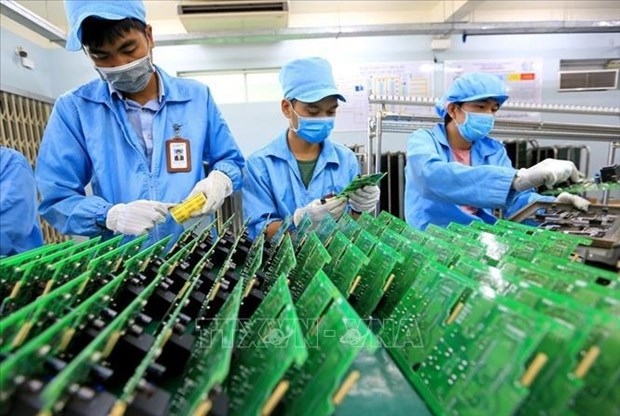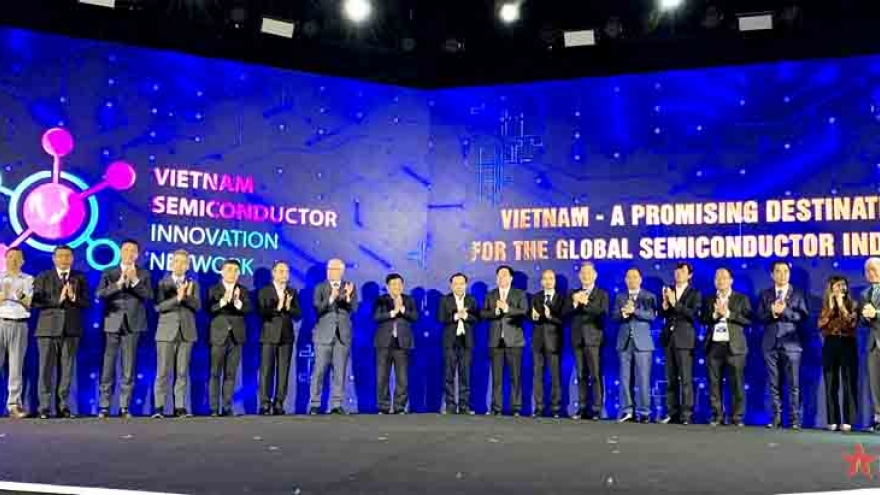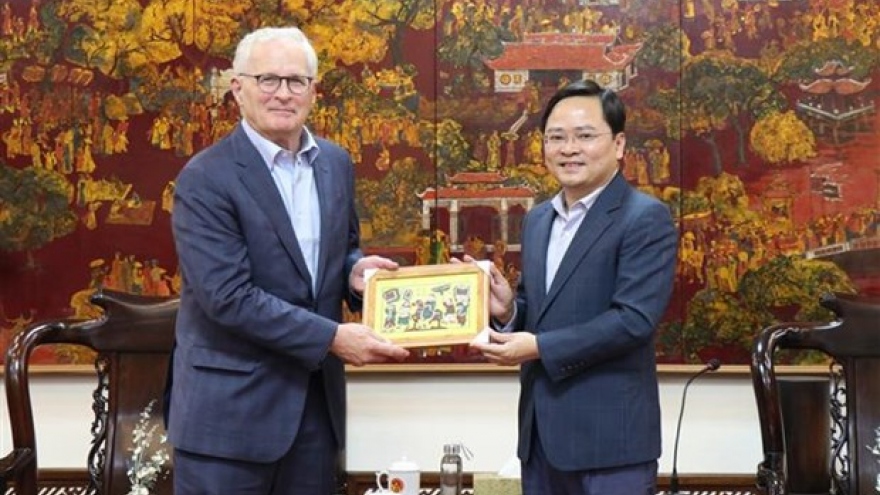Ministry, institutions move to develop high-quality semiconductor manpower
The Ministry of Education and Training (MoET) and educational institutions are working to promote the training of human resources for the semiconductor industry, which now has great demand for high-quality manpower.

In Vietnam, 11 educational institutions are providing training closely related to the semiconductor and integrated circuit sector, and 35 others have training programmes with semiconductor and IC-related majors.
Some training branches fundamental to IC design, including electrical and electronics engineering; mechanical, aerospace, and manufacturing engineering; computer science and information system; technique and technology; and mathematics at such big universities as Hanoi University of Science and Technology (HUST); Vietnam National University, Hanoi (VNU); and Vietnam National University, Ho Chi Minh City (VNUHCM) have been listed at the 201st - 550th places in the QS World University Rankings.
Assoc. Prof. and Dr. Tran Xuan Tu, director of information technology institute at VNU University of Engineering and Technology, said Vietnam boasts young and abundant human resources with good mathematical mindset and improving capacity.
The fields of technology and technique, especially information technology, automation, electronics, and computer engineering, which are linked with different steps of the semiconductor industry are grasping young people’s interest. Therefore, domestic institutions need to devise training plans and keep improving the quality of human resources to optimise this advantage, he opined.
Assoc. Prof. and Dr. Tran Manh Ha from the VNUHCM said that four schools of the VNUHCM are providing training connected with IC design, namely University of Technology, University of Science, University of Information Technology, and International University.
For 2023 - 2030, the VNUHCM plans to train 1,500 engineers and graduates, 500 others holding the master’s degree, and 15,000 holding certificates on IC design. It will build four training laboratories and two in-depth ones and establish an institute for semiconductor research.
However, Ha also pointed out certain difficulties such as the shortages of codes for IC design training branches, training curricula and courses, support for lecturers, experts and attraction of talented students, laboratories, and an IC research and design centre that connecting schools with experts and businesses.
Assoc. Prof. and Dr. Bui Thanh Tung from the Hanoi-based VNU noted this university has about 20 training branches relevant to semiconductor and IC, with about 1,500 students each year. It has developed semiconductor and IC research groups and invested in equipment and laboratories.
Strong at scientific, technical and technological branches, the HUST currently has seven branches near and two others specialised in IC design with an annual admission target of more than 3,000 students.
Assoc. Prof. and Dr. Nguyen Duc Minh from the HUST also pointed out several challenges, including the shortages of specialised software and equipment, learning materials, lecturers, and students.
To scale up semiconductor-related training, Tung held that it is necessary to issue a code for the pilot training in semiconductor and IC, encourage businesses to invest in and coordinate with educational institutions in developing semiconductor and IC human resources, and attract excellent researchers to teach at universities.
Meanwhile, the VNUHCM suggested a national strategy for the semiconductor industry be released to mobilise long-term resources, and codes issued for the training in IC design at both undergraduate and post-graduate levels. It also proposed the MoET devise mechanisms for identifying student admission targets and sharing laboratories since investment in these facilities are costly.
Representing Da Nang University, Assoc. Prof. and Dr. Nguyen Hong Hai proposed the city’s authorities to build policies for attracting semiconductor businesses, and provide favourable conditions for domestic and foreign scientists and experts to teach and conduct studies at local schools. It is also important to set up a centre for semiconductor research connecting the State, businesses, and universities.
Speaking at a recent workshop, Minister of Education and Training Nguyen Kim Son noted that if Vietnam manages to develop the semiconductor industry, its stature will be promoted. The MoET views developing human resources for this sector as one of the focal tasks to be boosted in higher education next year and beyond.
As this is a new industry, new methodology and vision are required, he said, adding that firstly, institutional solutions such as resolutions of the Government and the National Assembly are needed.
The MoET will complete standards for those training branches as soon as possible so that schools can design their training programmes. It is ready to create conditions for capable universities to recruit students. A special mechanism will also be created for them to attract experts and coordinate with domestic and international partners, according to the minister.


